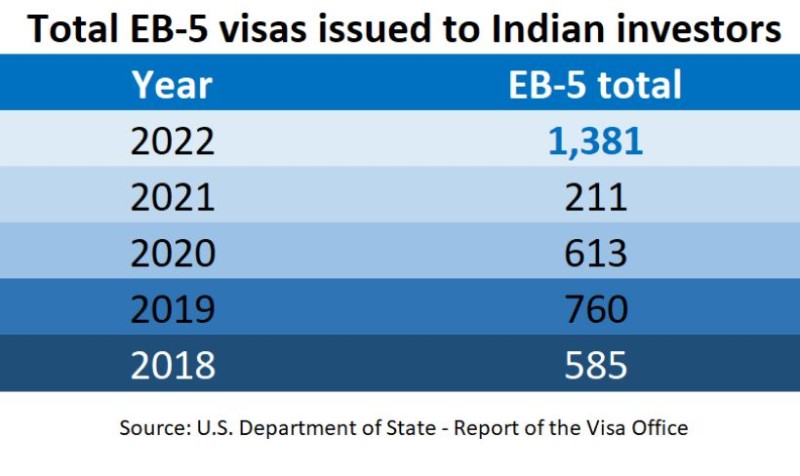
By Marta Lillo
The number of high-net-worth individuals (HNWI) in India is expected to reach 1.65 million by 2027, compared with nearly 800,000 in 2022, according to reports. And a fraction of them will be looking to leave the country soon.
Around 7,500 Indian HNWI (with investable wealth of $1 million or more) were looking to emigrate in 2023, according to the most recent wealth migration report, which ranks India as the second country worldwide with the highest number of HNWI and millionaires aiming to relocate, after China.
Why are Indian millionaires moving, and where?
The report from Henley forecasts large outflows of HNWIs in China, India, the U.K., and the Russian Federation due to “low or uncertain growth prospects because of unstable economic or geopolitical conditions.”
These motivations would include “prohibitive tax legislation coupled with convoluted, complex rules relating to outbound remittances that are open to misinterpretation and abuse,” said Sunita Singh-Dalal, partner at Hourani & Partners’ Private Wealth & Family Offices in the UAE, in the report.
Meanwhile, Poorvi Chothani, immigration attorney and managing partner at LawQuest in Mumbai, says that this outflow is for both personal and financial reasons like better lifestyle, business opportunities, access to better healthcare, and ease of travel.
“After the pandemic, these reasons continue to drive the market, but people are also considering remote work options, the economic recovery of the host country, health and safety, and the country’s approach to environmental issues,” she explains.
Indian HNWI interested in Dubai, Singapore, and U.S. visas
Dubai (UAE) and Singapore are expected to remain the preferred closest destinations for Indian HNWIs, according to the report. Meanwhile, the United States would remain the first option when looking West.
Chothani says mature or elderly Indian HNWI prefer Europe, the UAE, and Singapore.
“The younger investors, often backed by funding from parents, and those who have lived long term in the U.S., prefer the EB-5 program,” she adds.
According to Rohit Turkhud, of counsel at CSG Law, migrating to the U.S. is attractive for Indian nationals due to a combination of factors, which would “outmatch” most investor visa options in other countries.
“Some of which are education, opportunities in business, jobs, life in general, and stability – despite ‘passing’ challenges. As we know, several residency programs have been introduced globally, but I think that the U.S.’ has survived the longest and the best. Other countries that have ‘come and gone’ may include Portugal, Grenada, Canada, and the U.K.,” he says.
The report states that the Portuguese golden visa was a favorite of Indian HNWIs for years until the country approved legislation in 2023 that is expected to end the real estate investment option.

Current trends in Indian EB-5 applications
The EB-5 visa program mainly draws Indian HNWI’s interest, says Farah Abbas, principal attorney at Abbas Law Firm. “Increasingly, Indians are coming to the U.S. using other programs, such as the H-1B program or the L-1A program, and then using EB-5 as a faster way to achieve their green card,” she adds.
The U.S. Citizenship and Immigration Services (USCIS) issued 1,381 of these visas to Indian investors in 2022, the highest number recorded to date, followed by 760 in 2019, according to the U.S. Department of State.
This interest in the EB-5 program makes Indian nationals the second largest Asian immigrant group after China. And it’s leaving a mark.
Abbas adds that several new applicants arrive at the process already knowledgeable of its particulars.
“Many of the clients I speak with nowadays have family, friends, or colleagues that have already come over on the EB-5 program. So, they have done their homework, understand the Regional Center program vs. direct EB-5s, source of funds requirements, currency transfer issues, and so on,” she notes.
As to their preferences, Chothani states, “EB-5 regional centers have realized that real estate projects do well with Indian investors. Hence, we see a lot of such projects being presented to Indian investors as opposed to snow-making projects and shrimp farming, which were offered in the early days of the EB-5 story in India,” she explains.
Demand has remained high despite increased investment amounts and application processing backlog issues, says Turkhud.
“I am honestly impressed with the interest and the resilience of India-born individuals to pursue the U.S. EB-5 visa despite the increased amount to $800,000, the long processing times, and established process inefficiencies.”
Longer waiting times for other U.S. visa programs would also explain the increasing EB-5 appeal, Chothani says.
“Demand for EB-5 visas is fueled further by the long and unpredictable wait times for EB-2 and EB-3 visas. This has become very attractive for persons already in the U.S. on non-immigrant visas, who can now file concurrent adjustment applications even when a visa number is unavailable. This, along with work authorization, allows them to remain and work in the U.S. while they wait for adjudication and subsequent visa number,” she adds.
With the wealthy Indian population expected to expand, so would their desire for new opportunities and increased security. In the evolving global mobility landscape, their quest for secondary residency or citizenship would remain an appealing path to fulfill these aspirations.
DISCLAIMER: The views expressed in this article are solely the views of the author and do not necessarily represent the views of the publisher, its employees. or its affiliates. The information found on this website is intended to be general information; it is not legal or financial advice. Specific legal or financial advice can only be given by a licensed professional with full knowledge of all the facts and circumstances of your particular situation. You should seek consultation with legal, immigration, and financial experts prior to participating in the EB-5 program Posting a question on this website does not create an attorney-client relationship. All questions you post will be available to the public; do not include confidential information in your question.








